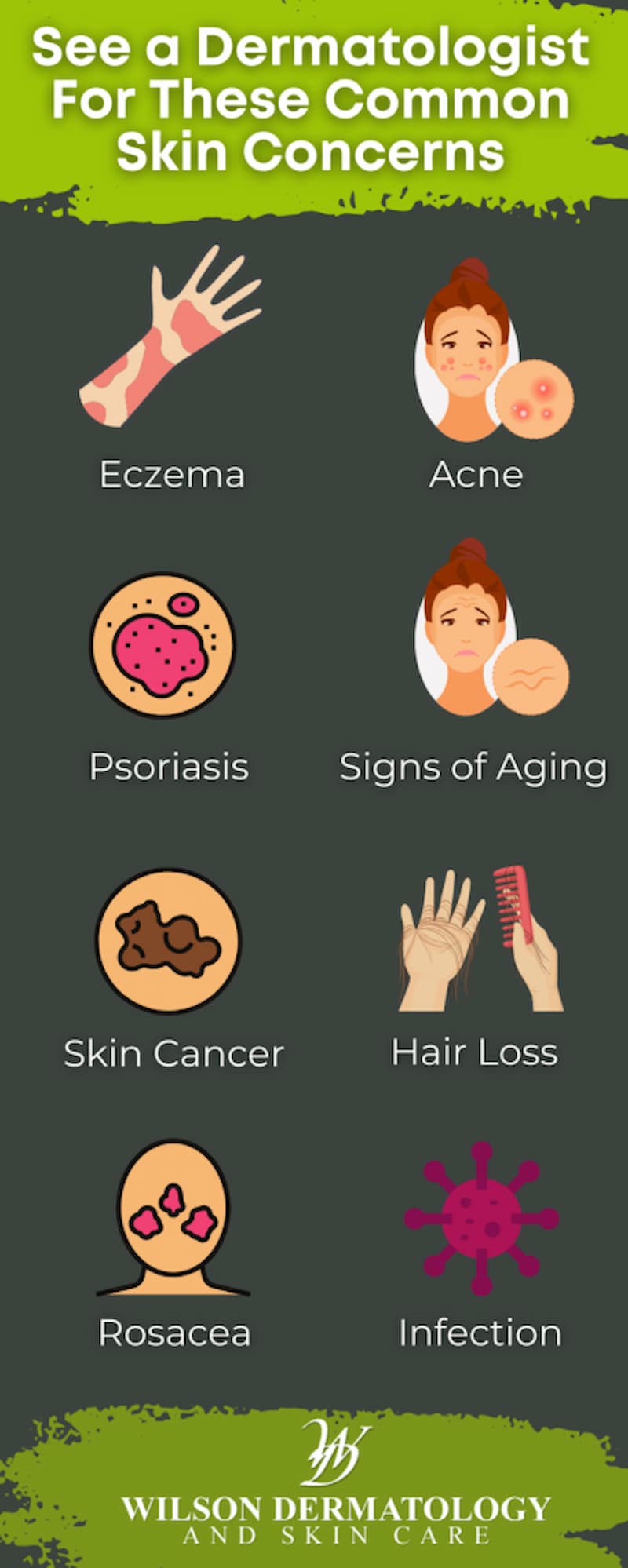Have a regular skin cancer check to protect your skin health with early detection.
Have a regular skin cancer check to protect your skin health with early detection.
Blog Article
Extensive Dermatology Knowledge: Attending To Acne Issues, Mole Concerns, and Eczema Symptoms
When it pertains to skin health, detailed dermatology expertise is essential; it encourages individuals to deal with usual skin concerns such as acne, mole irregularities, and eczema with self-confidence. Recognizing acne treatments, acknowledging possible skin cancer check in moles, and taking care of eczema triggers can dramatically improve skin health and wellness - skin cancer check. This article will certainly discover these subjects, offering an insightful consider the scientific research behind these usual skin concerns - an expedition that promises to enlighten and inform
Understanding the Basics: What Is Acne, Moles, and Eczema?
While lots of people might know with the terms acne, moles, and eczema, understanding what they in fact are is a different issue entirely. Acne is a skin problem defined by inflamed or contaminated oil glands, usually noticeable as pimples or spots, largely on the face, back, and breast. Moles, on the other hand, are tiny skin developments brought on by clusters of pigmented cells; they can show up anywhere on the body and differ in shade and dimension. Dermatitis, additionally understood as atopic dermatitis, is a chronic problem triggering inflamed, scratchy skin, usually taking place in reaction to irritants or irritants. While these conditions prevail, they can have differing levels of extent and effect on an individual's life.
The Science Behind Acne: Reasons, Types, and Therapies
The complex scientific research behind acne begins with recognizing its formation mechanism. This complex process, affected by various aspects, results in various sorts of acne. The post will certainly also discuss effective treatments available to handle and treat this usual skin problem.
Acne Formation System
A frustrating bulk of individuals will experience the typical skin disease called acne at some point in their lives. Acne formation begins with the overproduction of sebum, an oily compound produced by sweat glands in the skin. This excess sebum, in addition to dead skin cells, obstructs the skin's pores. When these clogged pores become infected with Propionibacterium acnes, a germs normally existing on the skin, inflammation happens, leading to noticeable acne. There are various kinds of acne, including blackheads and whiteheads (non-inflammatory), and papules, pustules, nodules, and cysts (inflammatory) Hormonal changes, especially throughout the age of puberty or menstruation, can intensify acne by causing raised sebum production. Understanding this system is important for making efficient therapies, a topic to be reviewed later on. mole removal.

Reliable Acne Therapies
Virtually everyone will certainly grapple with acne at some factor, making a clear understanding of effective acne therapies necessary. Various therapies target different facets of acne, such as inflammation, oil manufacturing, and bacteria. It's crucial to remember that not all treatments will function for everybody, as acne's reasons and seriousness vary.
Mole Matters: Recognition, Examination, and When to Look For Clinical Focus
Moles, common skin growths, call for careful identification and normal evaluation for ideal skin health (eczema specialist). Recognizing the normal look of one's moles, together with any kind of modifications that may happen, is essential. Motivate medical focus must be looked for when particular indications, which will be discussed, are discovered
Comprehending Mole Recognition
Exactly how does one compare a harmless mole and one that may require clinical attention? First, comprehending the characteristics of normal moles is essential. A typical mole is normally round or oblong, has a smooth edge, and is no larger than 6mm in diameter. The color must be consistent and can vary from pink, tan, brownish, or black. Moles normally show up during childhood years or teenage years, and by their adult years, use this link many people have in between 10 to 40 moles. Moles that change in dimension, form, or color, become scratchy or bleed, or appear after age 30 can be alarming. These irregularities don't instantly suggest skin cancer however are reasons to additional resources consult a dermatologist. Recognizing mole identification is the primary step in skin health management.
Doing Normal Mole Evaluations

Recognizing Essential Medical Indicators
Understood as the ABCDE's of mole analysis, these adjustments might aim to deadly cancer malignancy, a dangerous kind of skin cancer cells. An individual ought to likewise be cautious if new moles show up after the age of 30 or if there's an abrupt boost in the number of moles. Routine self-examinations matched with professional assessments make certain very early discovery and effective treatment of potential skin problems.
Dermatitis Explained: Causes, Symptoms, and Taking Care Of Flare-Ups
Although dermatitis may appear as a simple skin irritation to the untrained eye, it is, actually, an intricate dermatological condition with a plethora of prospective causes. Dermatitis, likewise referred to as atopic dermatitis, is usually triggered by a combination of hereditary and environmental factors. Signs and symptoms can range from light dryness and itchiness to serious rashes and swelling. Triggers may differ between people, however common ones consist of allergens, toxic irritants, and tension. Taking care of eczema generally entails determining and staying clear of triggers, preserving a good skin treatment regimen, and utilizing suggested treatments. Due to the page persistent nature of eczema, flare-ups might still take place even with mindful management. The secret is to address these flare-ups immediately to stop aggravating symptoms.
Practical Skin Treatment Tips to avoid and Take Care Of Acne, Moles, and Eczema
Recognizing and attending to skin conditions such as acne, moles, and dermatitis need useful and effective skin care behaviors. A balanced diet abundant in antioxidants can boost skin health and wellness and reduced swelling, potentially minimizing acne and eczema extent. Routine skin checks assist in very early mole detection, possibly preventing skin cancer cells.
Professional Dermatology Treatments: A Review of Modern Solutions
Skin specialists today have a vast selection of effective treatment choices to deal with different skin problems. With moles, specialist elimination is performed if they pose a health and wellness threat. All these therapies are under the specialist guidance and care of dermatologists, guaranteeing safe and efficient administration of skin problems.
Verdict
Acne monitoring needs knowledge of various therapy alternatives, while mole evaluation can lead to early detection of skin cancers. In-depth dermatology understanding is essential for protecting against and handling these skin problems, emphasizing the demand for specialist dermatologist treatment to enhance skin wellness.
Report this page